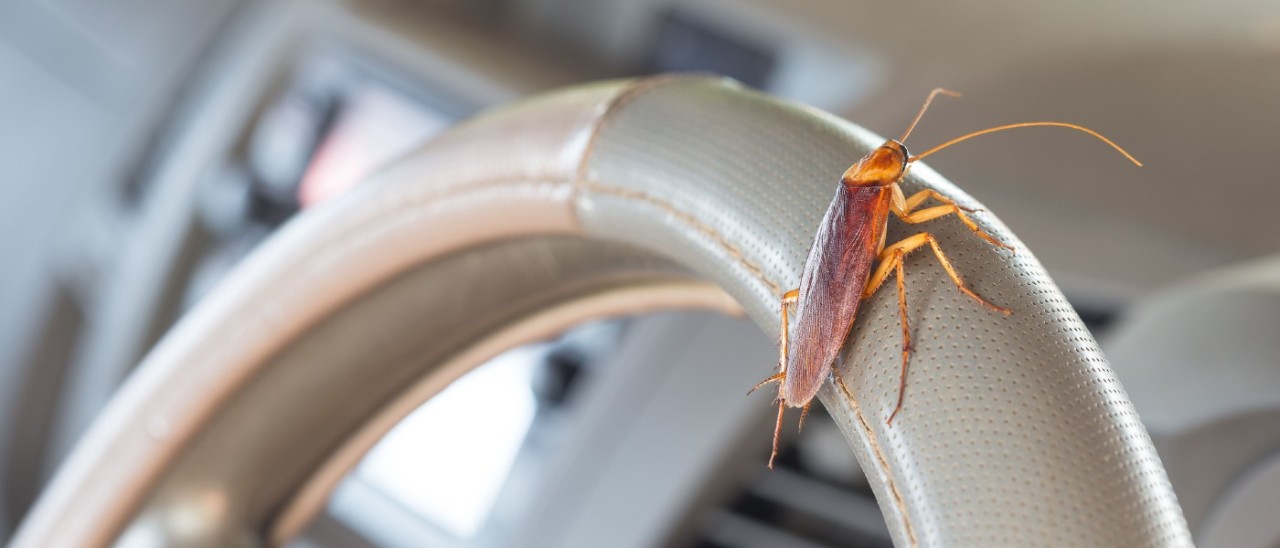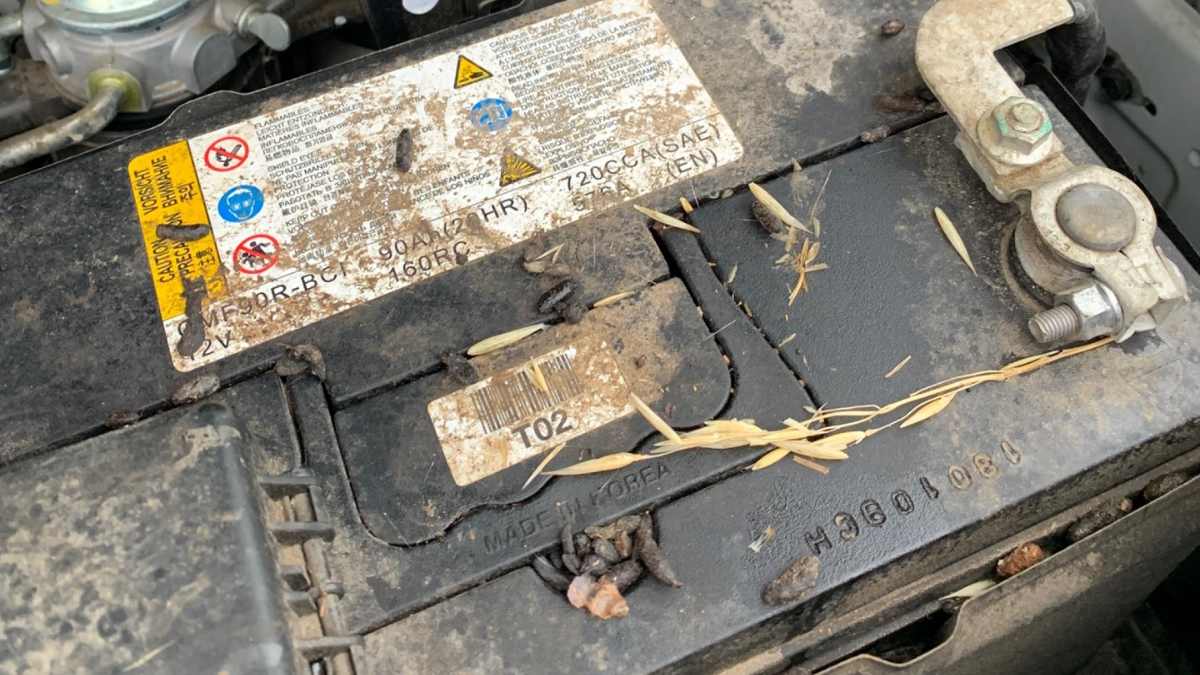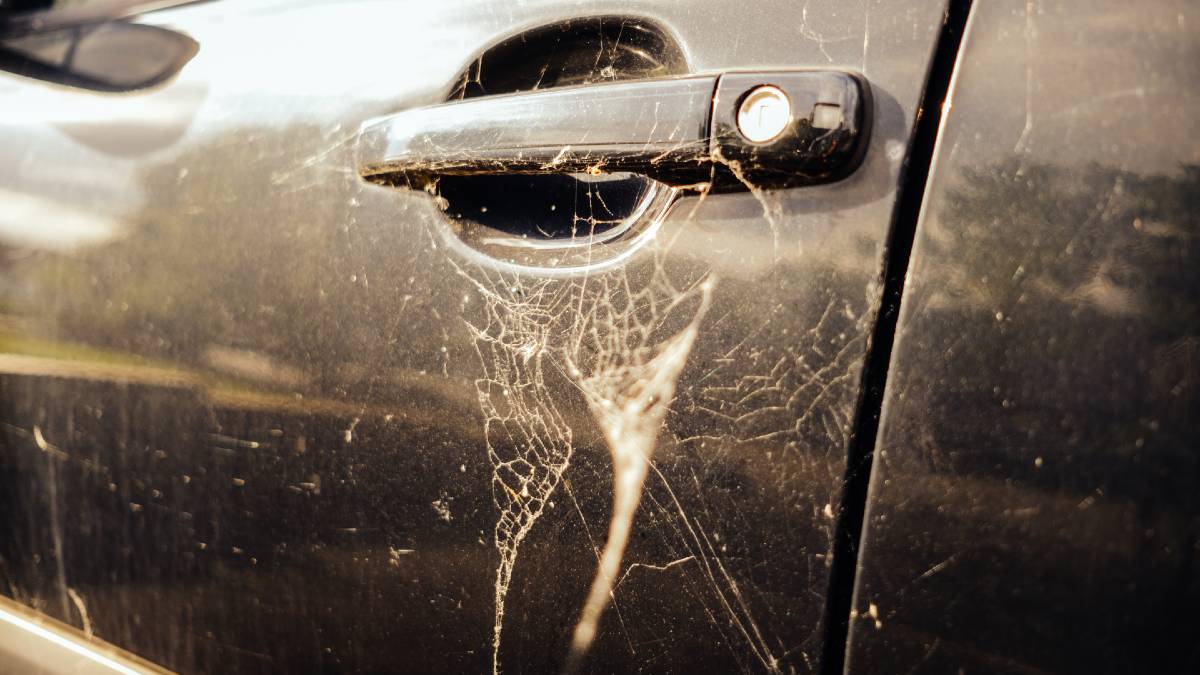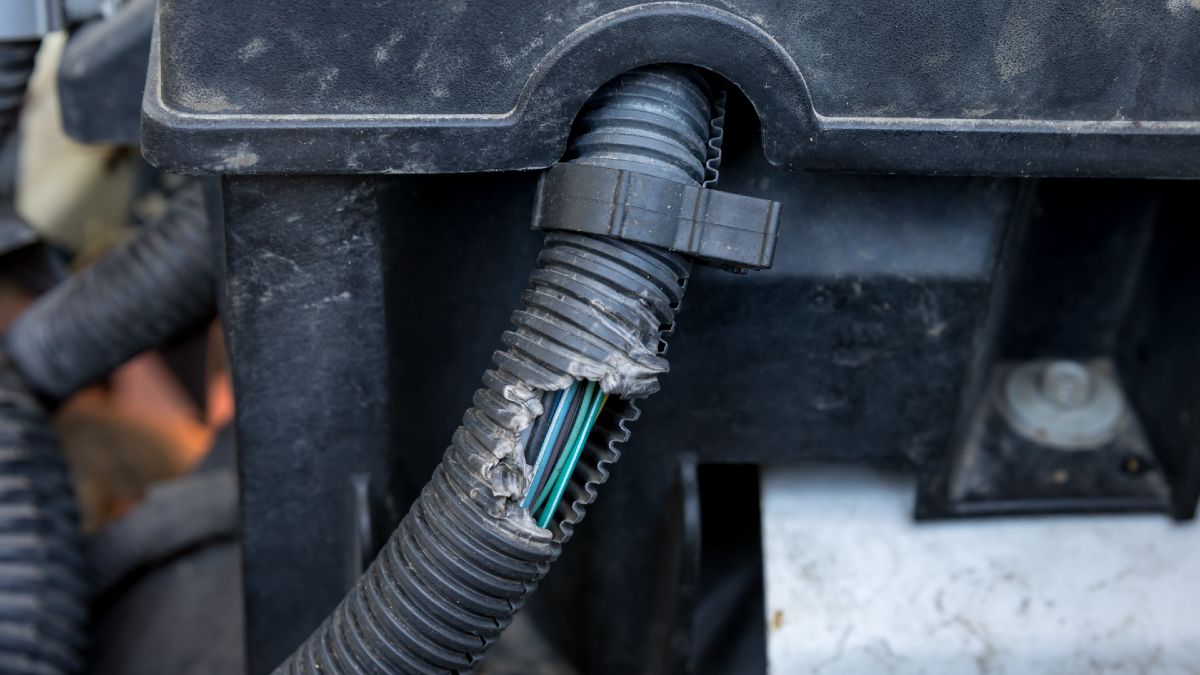More Australians are heading off the beaten track on four-wheel-drive holidays. Here's what you need to know to prepare for an off-road adventure.
Pest control guide for your car, including cockroaches, rats, and wasps

When you think about pest control, you probably picture mice invading your pantry or termites destroying your timber foundations. But what about your car? Here's a guide to preventing pest problems in your vehicle and staying safe on the road.
Victorians, especially those in rural areas or who park outside, may discover that pests like rodents, spiders, ants, and even possums can infiltrate their vehicles, leading to damage and safety hazards. In addition, an insect such as a wasp flying around your vehicle can pose significant road risks.
If you're driving and notice a spider, cockroach, wasp, or similar pest in your car, it's important to stay calm. Keep your hands on the wheel and your attention on the road, and stop at a safe location, where you can safely remove the creature from your car.
"The sudden fright caused by a spider, insect or rodent can pose a serious safety risk," says RACV Head of Policy James Williams. "If you're surprised by a pest in your car, stay in control of your vehicle and pull over when safe to do so to deal with the problem."
Here's how to spot the warning signs of resident pests and infestations, along with tips on how prevent pests from making your car their next home, so that the only things crawling into the passenger seats are your friends or family.
How to get rid of pests in your car
Why pests love cars
"From a pest's perspective, your vehicle is an ideal refuge," says RACV Digital Motoring Editor Andrea Matthews. "It's dark, warm, often undisturbed for hours or days at a time, and sometimes even contains food."
In winter, cars provide warmth and shelter. In summer, shaded undercarriages and engine bays can be attractive to animals seeking cooler conditions. Add to that any crumbs, pet food or takeaway wrappers left behind, and you've got a pest paradise.
Common entry points for pests into cars include:
- open windows or sunroofs
- gaps in rubber door seals
- cabin air intake vents
- wheel wells and undercarriage
- bonnet openings and loose grilles.
Risks of vehicle pest infestations
There are several reasons why you don't want pests in your car.
Mechanical and electrical damage - rodents can chew through wires, hoses and insulation, leading to costly damage or dangerous faults.
Health hazards - pests like cockroaches and rodents can carry diseases, while spiders can bite. Their droppings and urine can also create hygiene issues inside the cabin.
Driving distractions - a spider dropping from the roof liner or a wasp flying around while driving can lead to panic and dangerous distractions.
Odours and allergens - pest infestations can leave behind strong smells, droppings or allergens, making your vehicle an unpleasant or unsafe space - especially those with respiratory conditions.

Rodents can cause a lot of damage to your vehicle.
Common car pests in Victoria
Rodents (rats and mice)
"Rodents are arguably the most damaging pests to vehicles," Matthews says. "They can nest in engine bays and chew through wiring, insulation and even air filters. Rodent damage is a common reason for vehicle breakdowns, and repairs can run into the thousands."
Signs of rodents:
- Chewed wires, hoses or insulation
- Droppings under the bonnet or on floor mats
- Nesting material like leaves, fabric or paper
- Foul, musky smell
- Vehicle warning lights caused by electrical issues
Ants
Ants may seem harmless, but if they build nests inside your car (particularly in air vents or under seats), they can become a major nuisance. Some species are attracted to electrical components and can cause issues with sensors or electronics.
Signs of an ant infestation:
- Ant trails across the dashboard
- Ant clusters near vents or cupholders
- Small piles of dirt or debris around door seals or the boot
Spiders
Victoria is home to several spider species, including redbacks and huntsmans, that are known to seek refuge in cars. Huntsman spiders, in particular, are notorious for startling drivers by appearing suddenly on dashboards or visors.
Signs of spider activity:
- Webbing in vents or around windows
- Egg sacs under seats or in boot corners
- Spiders spotted inside the cabin
Wasps
Wasps can get into cars for several reasons. They might be attracted to the smell of food or drinks inside the vehicle, or they could be seeking shelter from the weather. Most often they fly through open windows or doors while exploring their surroundings. Once inside, they can become agitated and pose a risk to the driver and passengers.
Sign of a wasps' nest:
- If you often see wasps flying in and out of your car, it could be a sign that they are nesting nearby or inside the vehicle.
Cockroaches
Often a problem in urban areas or vehicles that have had food left inside, cockroaches can be hard to get rid of once they establish a presence. They're known for hiding in small, dark crevices and multiplying quickly.
Signs of cockroaches:
- A musty odour
- Droppings that resemble coffee grounds
- Shed skins or egg cases in hidden spots
Snakes
A snake might seek refuge in your car, particularly on a rural property. It might be looking for a dark enclosed space, in search of food or seeking the warmth of the car engine.
Possums and pets
In rural and suburban areas of Victoria, possums and cats may crawl under or into vehicles seeking warmth or shelter. While less common inside the cabin, they can damage underbody components or cause chaos under the bonnet.
How to prevent pests in your car
Keep your car clean
This is the single most important tip. Food wrappers, drink containers, pet food and crumbs will attract everything from ants to rodents to your car.
Regularly vacuum the interior, wipe down surfaces and empty rubbish. Don't forget the boot and glovebox. Out-of-sight food items, old gym gear or muddy boots can become pest magnets.
Avoid long-term outdoor parking
Rodents and insects prefer darker, quieter locations. If you park outside near trees, garden beds or woodpiles, your car is more at risk of pest intrusion. Try to park in a garage or well-lit area if possible.
Check under the bonnet
"Every few days (especially if you don't drive often), pop the bonnet and check for signs of nesting, chewed wires or droppings," Matthews adivses. "If rodents are using your car as a home, early detection can save your wiring and wallet."
Seal entry points
Make sure all windows, sunroofs and vents are closed when the car is parked. Check rubber door and window seals for damage. If cabin air filters are old or missing, they can leave the air intake vent exposed to pests.
Use deterrents
There are various natural and commercial pest repellents you can try:
- Peppermint oil - soaked cotton balls can repel mice and ants
- Ultrasonic pest repellers - some plug into your 12V outlet and emit sounds that deter rodents
- Anti-rodent tape - coated in capsaicin (pepper extract) to wrap around wires and deter bites
- Camphor blocks - used in boot areas to repel insects.
Move your car regularly
Stationary cars attract pests. Even short drives will disturb nesting pests, dry out moisture and keep the engine bay too warm for long-term stays.

This would be a clear warning sign of spiders in the car. Image: Getty
What to do if you find pests in your car
Rodents
If you suspect rats or mice, act quickly. Their damage is often fast and costly. Thoroughly inspect the engine bay, air filter box, behind panels, and under the seats to confirm their presence.
Clear any organic material or leftover food from your car to remove the rodents' food source. You can use snap traps in the garage or enclosed bait stations under the bonnet to get rid of the mice or rats. Then clean your car interior with disinfectant, remembering to wear gloves and a mask when cleaning droppings.
"If you find extensive damage or an active nest, contact a pest control service familiar with automotive infestations," Matthews says.
Ants
Look under mats, in vents, or under seats to locate and remove a possible ant nest. Clean all surfaces in your car with a vinegar or citrus-based spray to deter more ants. Vacuum and repeat - ants may return unless all traces are removed.
Only use insecticidal sprays labelled as safe for car interiors, and avoid overusing them in enclosed spaces.
Spiders
Dislodge and remove any spiderwebs with a soft brush or vacuum nozzle to dislodge any webs. Carefully vacuum all corners of your car, especially footwells and under seats. Clean air vents with a brush and run the fan at full blast after spraying a small amount of insect spray outside the vent intake (under the bonnet).
Consider car-safe spider bombs if the infestation is bad, but follow ventilation instructions carefully.
Wasps
Keep windows closed when the car is parked and also when you're driving to prevent wasps from entering your car. Make sure food is sealed to reduce the likelihood of wasps being attracted to the inside of your vehicle.
If you do locate a wasps' nest near where you park your car, contact a pest control service.
Cockroaches
Remove all food sources from your carand vacuum the cabin thoroughly. Consider using charcoal or baking soda to absorb musty smells.
Place roach baits or traps discreetly under seats or in footwells. If you see more than a few roaches, you may need an auto-detailer or pest control expert.
Snakes
Check for signs of snake presence, such as shed skin, an unusual smell, or faeces. Call a professional snake handler if you have concerns.
If you notice a snake while driving, stay calm, pull over to a safe location and turn off the engine. Open all the car doors to give the snake an easy escape route. Step away from the vehicle and keep children and pets at a safe distance. Never attempt to grab or kill the snake yourself. Call a professional snake handler.
More: How to help deter snakes from your property and stay safe

If you find wires that have been chewed through, get your car checked by a mechanic immediately. Image: Getty
When to call in the professionals
If you've cleaned, sprayed, and still find pests returning - or if you're worried about damage to your vehicle - it's worth calling in help. Automotive pest control specialists or rodent-proofing services can inspect your car and surroundings for signs of nesting or entry points.
"For vehicles with expensive wiring or where pest damage is suspected (but not visible), a qualified mechanic can inspect underbody and engine bay components," Matthews adds.
If the car has been extensively infested by rats, possums or roaches, a professional detailer can perform an interior deep clean and sanitise affected areas.


